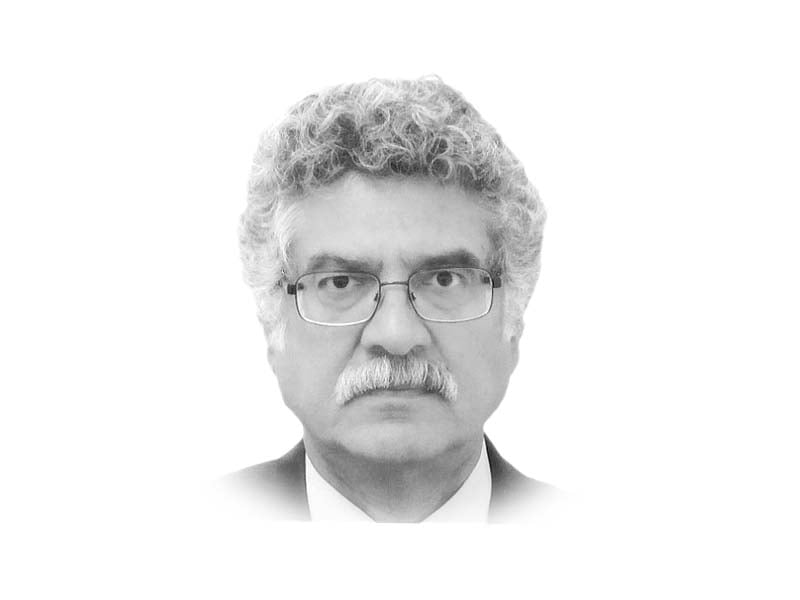
Even though the Biden administration has officially terminated America’s “War on Terror” following the withdrawal from Afghanistan, there has been a massive surge in terrorism against the Taliban by the so-called Islamic State Khorasan (IS-K) since last August. Clearly the scourge of terrorism in Afghanistan has endured despite twenty years of US counter-terrorism operations threatening not only Afghanistan and its neighbours but Western countries as well. Overcoming this terrorist threat requires cooperation with and giving assistance to the Taliban as they confront a major humanitarian and financial crisis. However, it remains to be seen whether the international community, especially the US-led West, will come to the Taliban’s assistance.
While the shambolic US withdrawal from Kabul was underway, IS-K struck a major blow near the city’s airport on August 26 killing over 170 Afghans and 13 US soldiers. Since then till the beginning of November, the IS-K has carried out nearly 60 terrorist attacks through suicide bombings, assassinations and ambushes. The latest and most gruesome attack was on Kabul’s military hospital on November 2 killing over 25 people among whom was senior Taliban Commander Hamadullah Rahmani. Attacks have also taken place in other cities including Jalalabad, Kandahar and Kunduz, killing at least 90 people. At first the IS-K attacked soft targets but now feels emboldened to target government officials and institutions.
After ISIS established its “Caliphate” in Iraq and Syria in 2015, the IS-K evolved in Afghanistan as an affiliate, following the same ruthless agenda and tactics. Remnants of al-Qaeda and disgruntled elements of the Afghan and Pakistani Taliban joined IS-K as did the Arabs who relocated to Afghanistan following the defeat of ISIS in 2017. Other terrorist groups with separatist agendas like the Eastern Turkistan Islamic Movement (ETIM) of Uighurs in China’s Xinjiang province, the Islamic Movement of Uzbekistan (IMU) and Pakistan’s Baloch separatist groups also began to collude with the IS-K. Following the US defeat and collapse of the Ghani government, former government troops, especially Tajiks and Uzbeks, joined IS-K as well. Now, IS-K is not just targeting the Taliban to establish control over Afghanistan but is also collaborating with terrorists targeting Pakistan and China.
This increases the possibility of India’s spoiler’s role in Afghanistan to undermine Pakistan and the Taliban government and perhaps even China by supporting terrorist groups that are effectively colluding with IS-K. There is also the question as to why the US did not effectively target IS-K while in Afghanistan and instead focused on the Taliban even though there were shared interests to do so between them. In this context, some have alluded to a deeper conspiracy — such as Iran repeatedly highlighting the NSA whistle-blower Edward Snowden’s claim that ISIS was created by the US, the UK and the Israeli intelligence agencies to exacerbate tensions between Shia and Sunni Muslims. Even US Senator Rand Paul wrote in The Wall Street Journal of August 27, 2014, “We should recognize how regime change in Syria could have helped and emboldened the Islamic State, and recognise that those now calling for war against ISIS [in Iraq] are still calling for arms to factions allied with ISIS in the Syrian civil war.” Equally intriguing, as noted by Harvard University scholar Graham Allison in August 2016, is the fact that ISIS and Israeli forces have never attacked each other. What is more — injured ISIS fighters were routinely treated in Israeli hospitals.
These facts highlight the murky role of the US and allied intelligence agencies that have used terrorist organisations for achieving their geo-political interests; IS-K could not be an exception. The alarming surge in attacks is meant to undermine the Taliban government and lead to anarchy in Afghanistan, posing greater security threats to its neighbours. This would certainly further Indian designs against the Taliban, Pakistan and China. Perhaps the US also wants to avenge its humiliating defeat for which it blames Pakistan and the Taliban. IS-K and its collaborators can also be used to extend US interests against China in Xinjiang, Iran and in the Central Asian states that are on Russia’s southern periphery. But this could also prove to be a highly risky undertaking for Washington. As testified by the Under Secretary of Defence, Colin Kahl, to the Senate on October 29: “We could see IS-K generate that capability somewhere between 6 to 12 months to threaten the US and its allies.”
The Taliban have expressed confidence that they can defeat IS-K, killing several of its members, dismantling its infrastructure and giving amnesty to those willing to surrender. However, the Taliban lack the capabilities for effective counter-terrorism operations. Their demands for the release of Afghan reserves in the US and for economic support from the West have been ignored so far. Though CIA Director William J Burns visited Kabul in August, no substantive counterterrorism cooperation has emerged.
So far only Pakistan has taken the lead to help the Taliban’s efforts against terrorism through bilateral efforts and by convening a forum of neighbouring states for security cooperation. All regional powers — China, Russia and Iran as well as Central Asian states — are actively involved in this effort. Acknowledging this, a Taliban spokesman recently stated, “Pakistan is our brother and they support us in many ways, including sharing information and intelligence about the IS-K.”
The crucial unknown in this context is the US role. Washington insists on conducting “over the horizon” operations which the Taliban reject as a violation of their territory. The US has also been unable to acquire bases in Pakistan or other neighbouring states. Meanwhile, the Biden administration seeks an “inclusive” Afghan government, respect for human rights and action against terrorists. Yet, the US is not willing to support the Taliban to deliver on counterterrorism. This has, therefore, become a circular argument with neither side willing to concede. But, if the US is genuine about tackling IS-K then it needs to find a way to cooperate with the Taliban even if their government is not recognised. After all, the US negotiated a withdrawal agreement with the Taliban and coordinated with them to evacuate US and allied personnel. Eliminating terrorism is far more important than any other objective in Afghanistan.
Published in The Express Tribune, November 10th, 2021.
Like Opinion & Editorial on Facebook, follow @ETOpEd on Twitter to receive all updates on all our daily pieces.

1730959638-0/trump-(19)1730959638-0-405x300.webp)
1719925273-0/BeFunky-collage-(46)1719925273-0-165x106.webp)









COMMENTS
Comments are moderated and generally will be posted if they are on-topic and not abusive.
For more information, please see our Comments FAQ